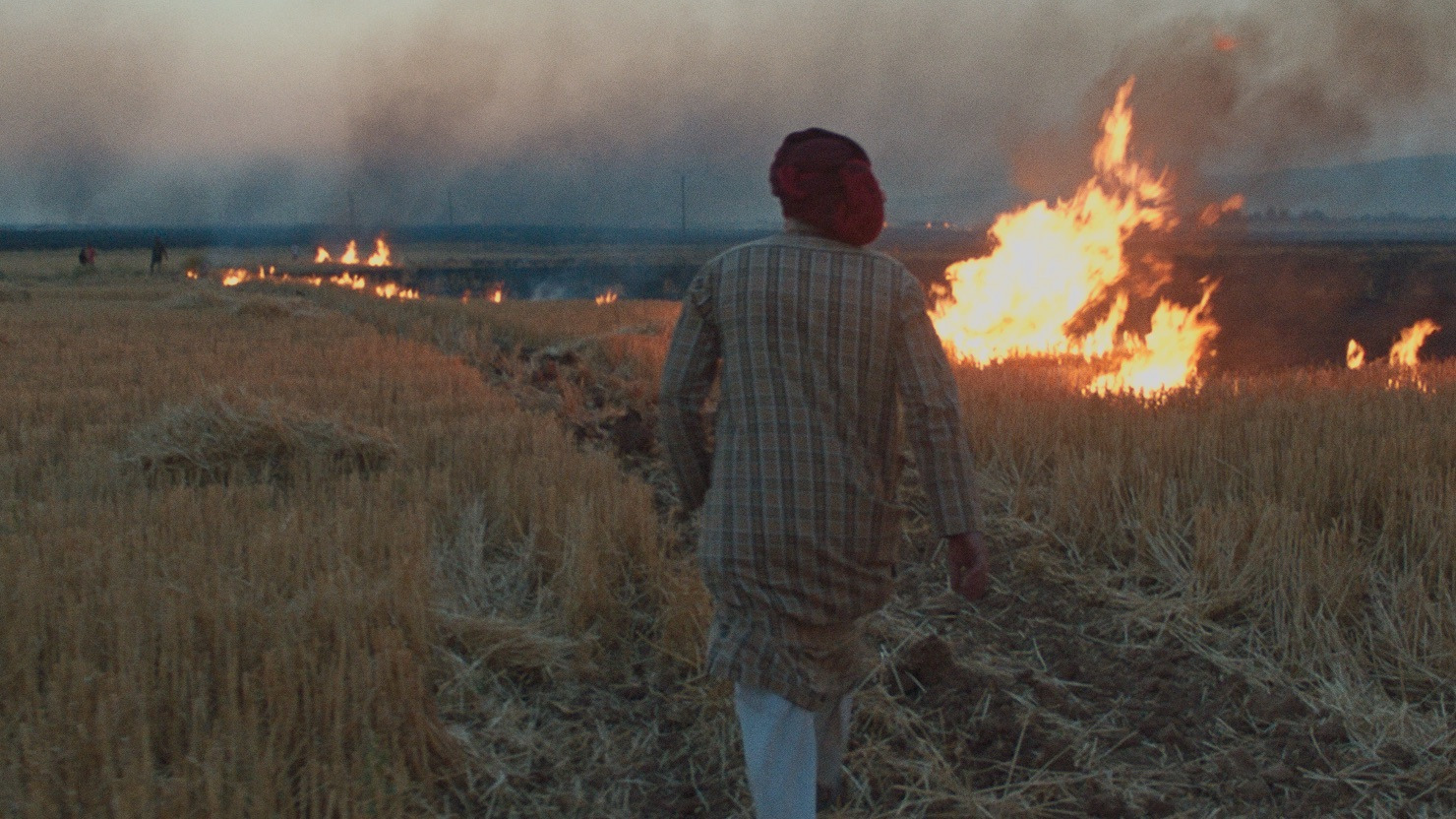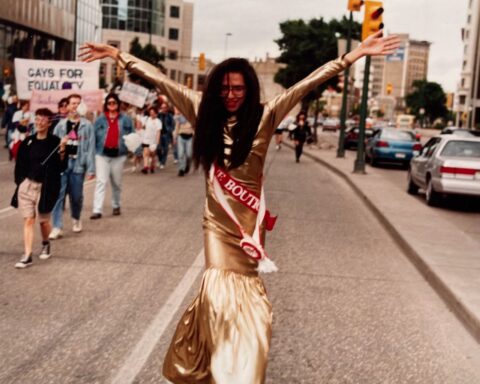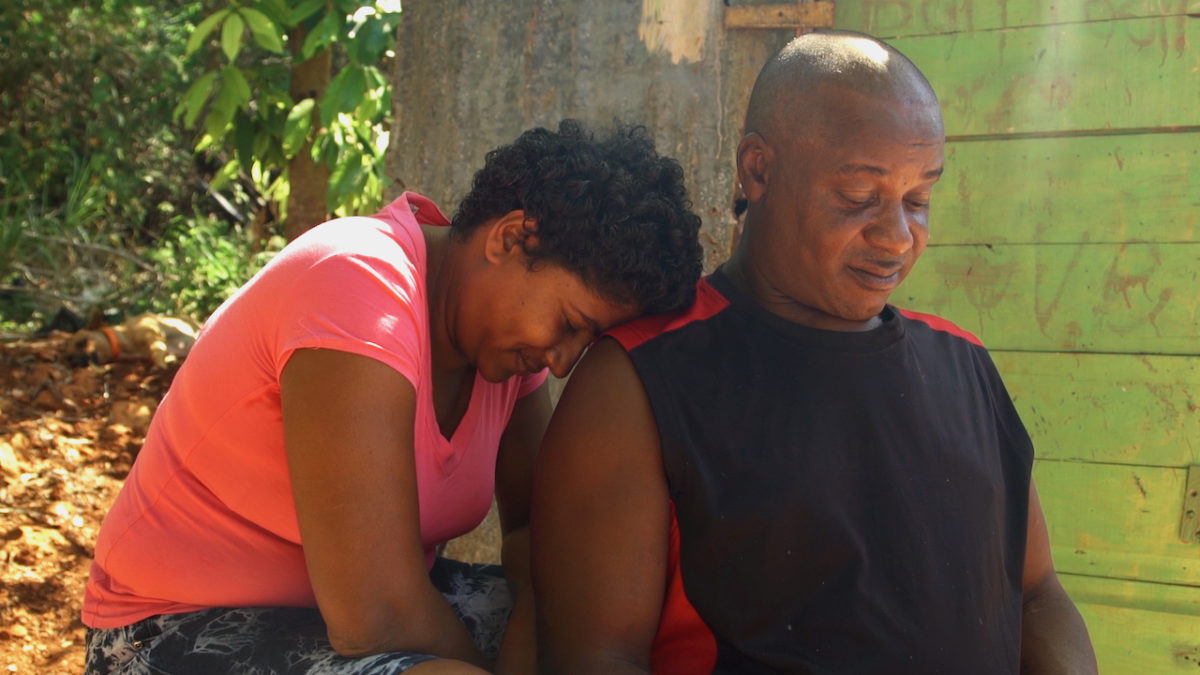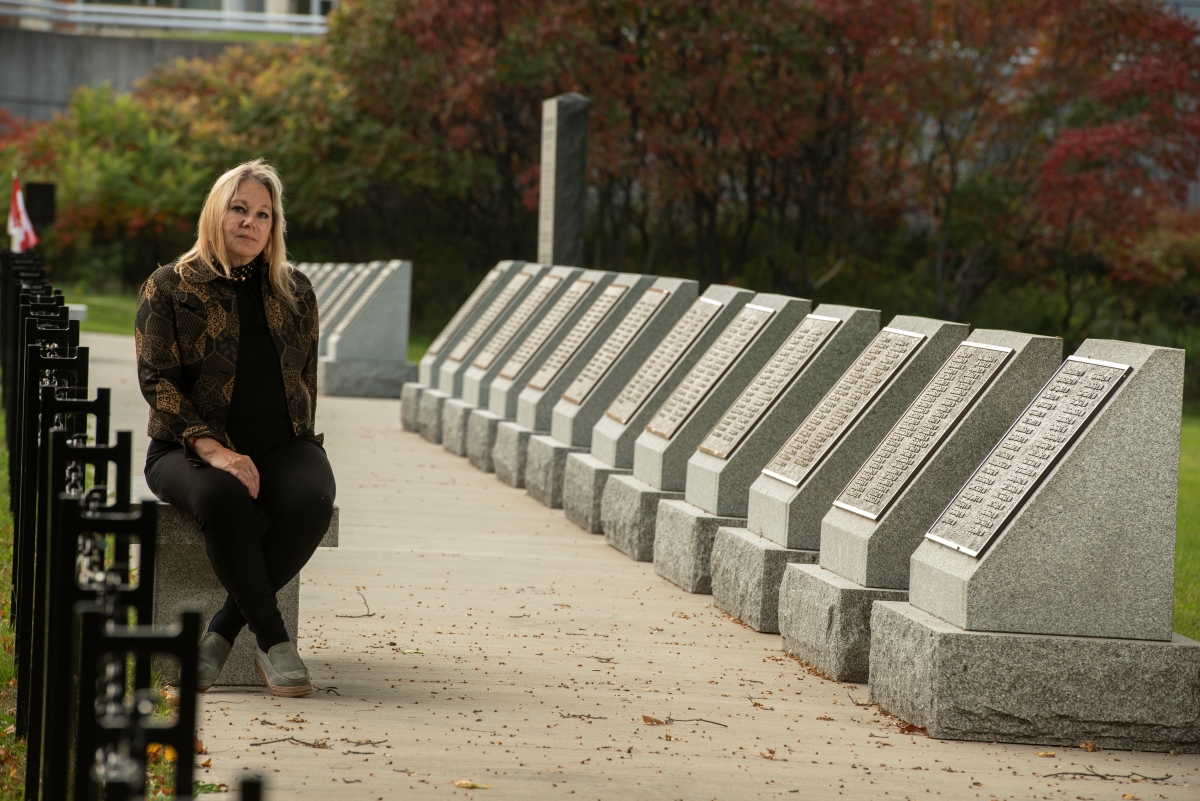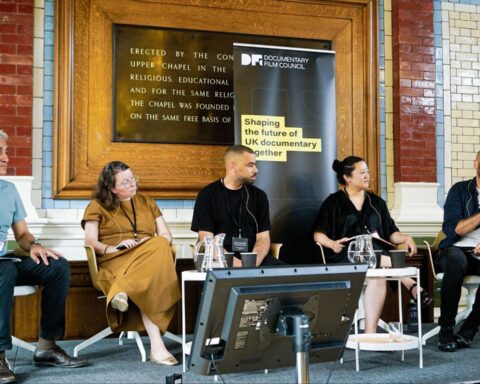Rojek
(Canada, 128 min.)
Dir. Zaynê Akyol
Program: Canadian Spectrum (North American Premiere)
What are you gonna do when the world’s on fire? Zaynê Akyol observes a fire that burns with seemingly inextinguishable force in Rojek. The film marks a return to the war-torn, scorched, and scarred landscape of Syrian Kurdistan for the director of Gulîstan, Land of Roses, which similarly considers the plight of Kurdish soldiers fighting for freedom amid ISIS’s siege. Rojek is a work of poetic inquisitiveness years-in-the-making. The film explores how the state recovers from the aftermath of war. More provocatively, though, Rojek interrogates the longevity of peacetime as Akyol, a Kurd herself, sits down with members of ISIS to learn what motivates them. This absorbing and admirably even-handed documentary looks the beast in the eye to weigh the context, cost, and consequences of fundamentalism.
Rojek will inevitably leave some viewers uneasy, both for the directness of the interviewees and for the languid pacing of the images. However, Akyol makes an assured effort to let her interviewees tell their perspectives on their terms, no matter who uncomfortable they may be for her or for viewers. She interviews over a dozen members of ISIS who are incarcerated in makeshift prisons. Their families, meanwhile, reside in limbo in the camps for families of ISIS terrorists. These massive tent towns aren’t refugee camps, though. They’re places of limbo. As one interviewee pleads to camera, “Punish me, but not my wife and daughters.”
The interviews
These conversations with the ISIS members run the gamut of topics. They cross languages, borders, cultures, and experiences. Akyol learns from men and women what drives their faith. She asks what they did and if they have any remorse. Some participants admit to killing, and others don’t. Some bear the weight of their sins while others are unrepentant. One interviewee sidesteps questions to protect his family. Others, meanwhile, discuss their participation detached from concepts of right or wrong, and guilt or innocence. They’re just following their beliefs.
Akyol finds a particularly captivating interviewee in a French-speaking woman who may defy many expectations that audiences, at least Western ones, have going in. She details ISIS as a welcoming environment for women where she and others were respected. The interviewee unpacks her work as a driver and explains how she fought alongside her sisters and brothers. She expresses love for Osama bin Laden and other high-ranking terrorists. Her gaze never wavers as if locked magnetically with the camera’s eye. She speaks with force, conviction, and authority: nothing will break her.
Perspective and Framing
Rojek may likely invite comparisons to the hugely controversial Sundance documentary Jihad Rehab, which similarly gained extraordinary access to detainees to learn about their faith, alleged actions, and remorse. However, there’s a marked difference between the films, which speaks both to the perspective behind the camera and the mode of inquiry that guides the work. At no point in Rojek does Akyol state the crimes for which her interviewees stand accused. Any details are offerings of their own. There are no “rap sheets” here to introduce the characters.
Meanwhile, Akyol contextualises the comfort of the participants by letting their language fluency guide the interviews. Some interviews are in English or French with Akyol speaking directly to her subject. Others have the aid of a translator to suit the interviewee’s tongue. Questions are permitted to go unanswered, and the tone of inquiry is one of understanding rather than accusation. There are stories of family life, children, and lost freedom. Nobody is named, and nobody is pressed. These are conversations in lieu of interrogations.
Landscapes of loss
Akyol’s interview strategy, however, does not offer the subjects a platform. Rojek draws associations between the stories and their consequences through contrasting images. Akyol and cinematographers Nicolas Canniccioni and Arshia Shakiba capture the land in arresting tableaux shots. The film lyrically observes the devastation to the land and its inhabitants. A finer point of comparison for Rojek might be that of a master filmmaker: Gianfranco Rosi’s Notturno. The Italian director’s 2020 film observed pockets of the Middle East, including Kurdistan in addition to Iraq and Lebanon, in striking long takes. Shooting both the interviews and the exteriors in tight Academy ratios, the contrast between the absorbing interviews and the releasing wide shots feels like coming up for air. However, when Rojek cuts to the world outside the prisons, it’s like surfacing while struggling to breathe. War is omnipresent.
Drone shots offer haunting aerial shots of the bombed-out remains of cities. These cities of ghosts, as little remains but the rubble – markers of people killed or forced to flee. Poetic shots of the Kurdish soldiers observe their training regimens with the striking sunlight framing them as guardians of the land. Alternatively, Rojek takes note of a farm where workers harvest grain. They turn the land, bring their crop to market, and endure long checkpoints to make ends meet. However, the farmers fight a constant war as arson engulfs their crops. Akyol situates the film within a meditative rhythm as the images return to the horrible sight of the workers scrambling to extinguish a fire that engulfs their lives. As fires burn in all directions, eating the landscape like an encroaching battlefront, Rojek hauntingly sees a world aflame.
Rojek premiered at Hot Docs and will open in theatres in Fall 2022.




